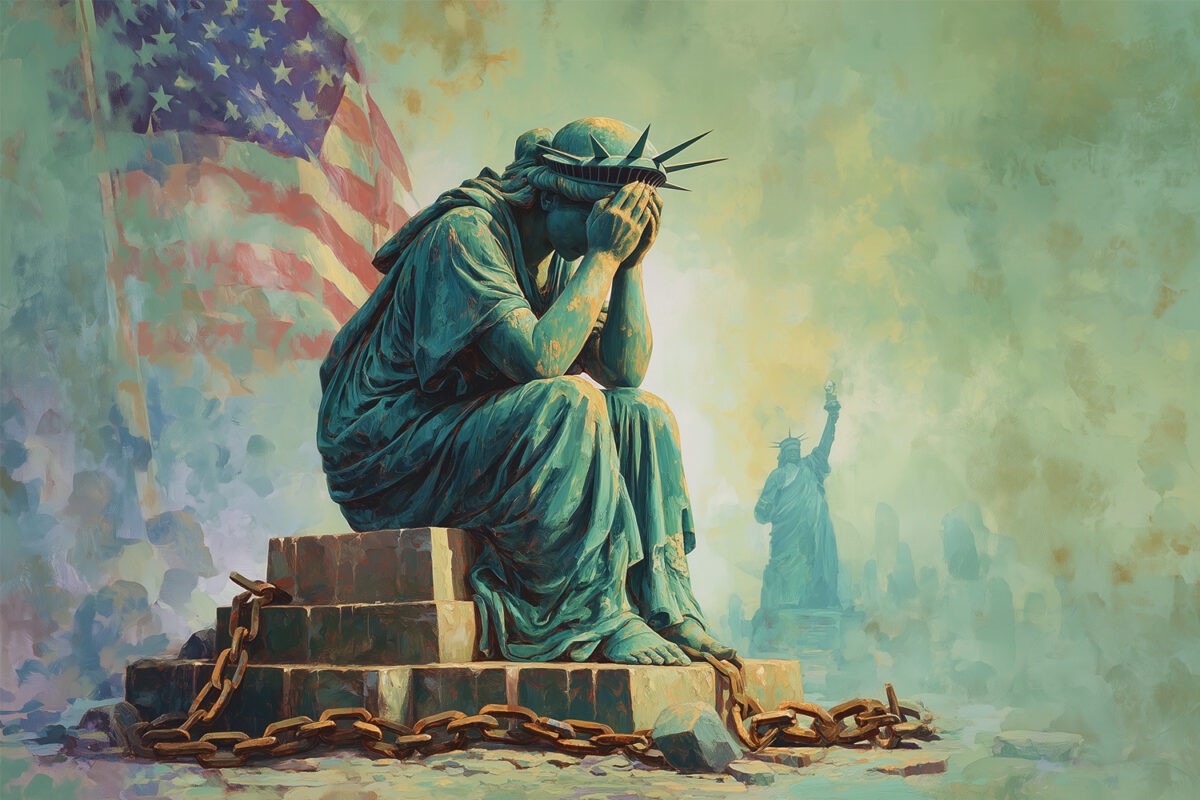Our analysts at the Geopolity have come up with a list of issues they believe will be major events during 2022 and which they will be following. In no particular order what follows are a forecast of the key issues for 2022.
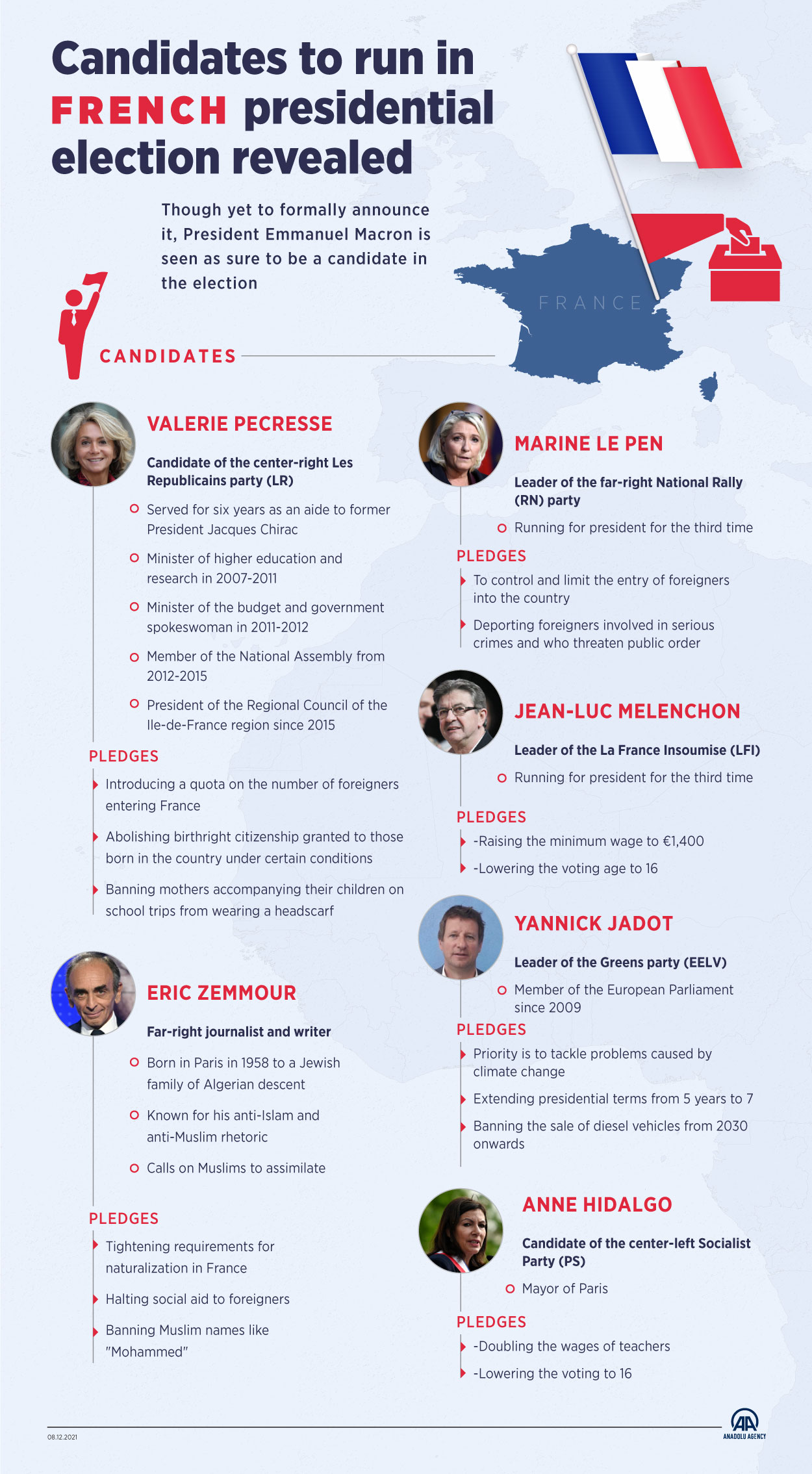
French presidential elections – France will go to the polls in April 2022 to elect their president. In the last elections in 2017 with no outright winner in the first round the ring-wing Marine Le Pen from the anti-immigration right-wing party Le Rassemblement National took on Emmanual Macron in the second round and ultimately lost to him. Macron only set up his political movement months before the elections. Being the outsider worked for him back in 2017 as anti-establishment figures did well across the world. Macron has managed to keep his approval ratings stable for most of his term, but the “Gilet Jaunes” or “Yellow Vest” protests continue to threaten his presidency and concerns remain amongst the French over energy, immigration and healthcare. As things stand it would appear Marine Le Pen presents the only real threat to Macron and will likely face him again in the second round of the French elections. The French elections were designed with two rounds to ensure unconventional parties do not get to power. Any shift in French politics has an impact on Europe as France is a key player on the continent. But it remains to be seen, despite the headlines, if Macron can be removed.
India state elections – Several Indian states are scheduled to hold elections in early 2022 with the presidential elections scheduled for later in 2022. President Narendra Modi has used religion and caste politics to strengthen his support base throughout his term. This emboldened right-wing Hindus and the many videos online show the repercussions of this. But Modi’s BJP face some challenges going into 2022’s elections. The BJPs mismanagement of the COVID-19 pandemic threatens it’s Hindu nationalist strategy. The farmers’ protests against the BJP’s agricultural reforms builds the perception that the BJP is in a weaker position going into the elections. Modi can really only be unseated if the opposition can unite, maintain their cohesion and build alliances in different states unseating the BJP. But the main opposition party the Indian National Congress (INC) has been suffering from its own internal divisions, especially in India’s most populated state, Uttar Pradesh. The elections in key states in early 2022 will present an opportunity to gauge whether the opposition can challenge the BJP.
US Midterms – In November 2022 Congress heads to the midterms, where the Democrats hold a slim 220-212 majority. Eight democratic senators are retiring from politics altogether, which raises the real prospect of the democrats losing both houses for the remainder of their term putting at jeopardy President Biden’s legislative agenda. President Biden was meant to be the experienced commander in chief, who was going to bring stability after President Trump ran the White House like a reality TV show. But Biden’s approval rating has been declining as his first year has worn on. The rise in COVID-19 deaths from the summer of 2021 and President Biden’s inability to connect with the millions that voted for Donald Trump, who continue to believe the election was stolen, do not help the presidents ratings. The Mid-terms could be the beginning of the end of of President Biden, unless he can turn matters around.
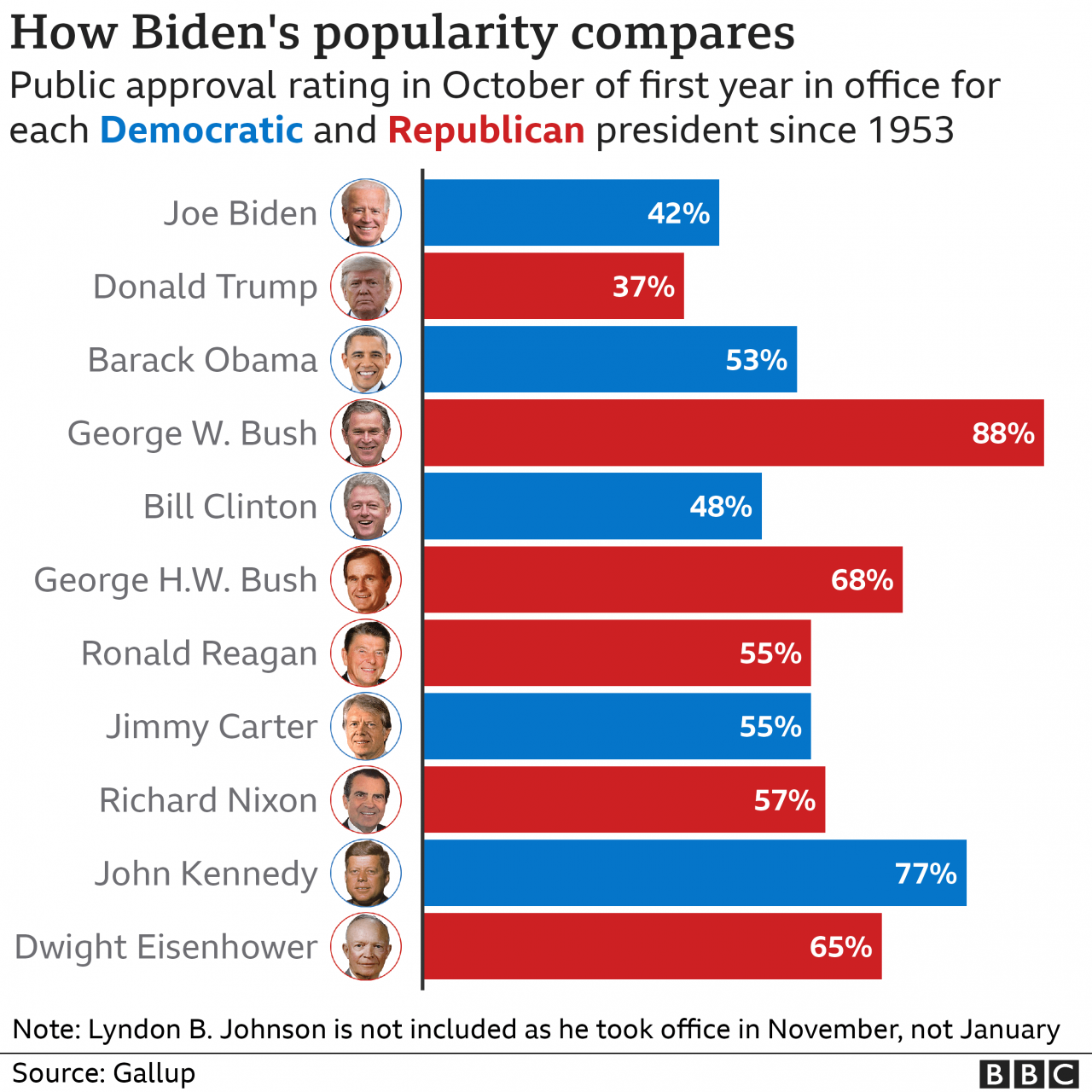
Afghanistan on the verge of collapse? – The United Nations World Food Programme (WFP) estimates more than half of Afghanistan’s 40 million people cannot feed themselves. Drought, Covid-19 lockdowns and conflict have all contributed, but the catastrophe has dramatically accelerated in months the Taliban have been in power. Whilst the Taliban are being labelled with causing the crisis, much of it is to do with western indifference. Foreign troops and foreign money propped up the western established government for nearly two decades. Jobs were created by the regime to maintain support and this all collapsed as America’s two decade war saw them abandon the nation. The nation which has been totally reliant on foreign aid for two decades has been cast off by donors now. The US placed sanctions on the Taliban and refused it access to the $10 billion in foreign exchange reserves the US holds in banks outside of Afghanistan. The West are all using the crisis to gain reforms and guarantees from the Taliban, which all brings the people of the country to the brink of destitution.
Imran Khan’s Failing Innings – With three years of his term now behind him, former cricketer turned politician, Imran Khan faces a tsunami of problems. After grand promises of Naya (new) Pakistan, the establishment of the Medina model and a welfare state, the PTI project is now on life support as once die-hard supporters have had enough of grand promises, fiery speeches and the constant shifting of blame on others. The Prime Minister is under criticism due to his government’s failure to make progress on the economic and political fronts as well as decisively confront the COVID-19 pandemic. The opposition has coalesced into the Pakistan Democratic Movement (PDM) using the same blueprint Imran Khan utilised to oust premier Nawaz Sharif from power. What makes this situation even more critical is due to the support Khan received from the real rulers of Pakistan, the military leadership. Their differences over the appointment of the new ISI chief shows the army sees a post Imran Khan situation after the next elections in 2023. Pakistan sits in a critical region, in between China, the US, central Asia and Afghanistan, 2022 will be a critical year for it.
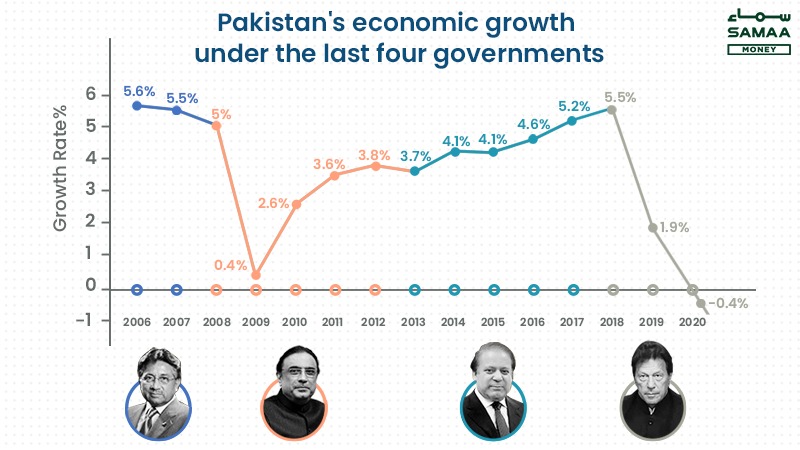
China’s Mute Response to American Moves – The AUKUS deal between the US, Australia and the UK was a major achievement by the US in its bid to contain China. The US now has an array of allies who are being supported with military, technology and economic aid to contain the Middle Kingdom. Like the Cold War, building and strengthening allies is America’s strategy in dealing with China’s rise. But there has been little from China to push back against this. China still does not have any allies it can reliably depend upon against the US. Whilst China has deep, economic and commercial ties with the majority of nations in the world, none of these have translated into political influence where China can rely upon them to back her against the US. China needs to push back against the US and whilst it has some longer term plans there has been little short to medium term policies to threaten America and this is needed if China wants to continue its ascent.
Phase one trade deal a failure? – Donald Trump began the trade war with China launching America’s other strategy to contain China. After a number of rounds of tariff increases Trump eventually ran out of commodities to place tariffs on. At the end of 2020 the Trump administration agreed a Phase One trade deal with China, which did not address the key issues of contention such as intellectual property theft, US access to China’s domestic market and China increasing imports form the US. President Joe Biden has been busy in his first year dealing with Covid-19 and his declining popularity. Whilst President Biden has been aggressive in his statements against China, his actions have been soft. In October 2021 the US administration’s China trade policy team-maintained Trump’s approach of imposing tariffs and targeting China’s trade practices. All of this would indicate the Phase One trade deal has been a failure. The US has failed to change China’s behaviour and the Phase One trade deal didn’t even address the most contentious issues.
The Iran Problem – Nuclear talks began between the US and Iran in December 2021 after a 5 month hiatus due to Iran’s presidential elections. Whilst these are talks between the US and Iran, in reality they are between a group of western nations, with the US not directly speaking to the Iranian representative. These talks come after Donald Trump ripped up the Joint Comprehensive Plan of Action (JCPOA). Once Joe Biden became president in January 2021 talks were revived to negotiate a new nuclear deal. The challenges that stand in the way are Iran’s contention that all Trump era sanctions should be removed as a condition for the talks. Iran had reached uranium enrichment of 60% when the talks were revived and this is leading Israel to push for an end to talks and more aggressive action against Iran. Low-enriched uranium, which typically has a 3-5% concentration of U-235, can be used to produce fuel for commercial nuclear power plants. Highly enriched uranium has a purity of 20% or more and is used in research reactors. Weapons-grade uranium is 90% enriched or more. With President Biden’s popularity in decline it’s likely the US will use more bellicose language with Iran making the possibility of a deal in 2022 even more unlikely. For the moment US attention is focused elsewhere and Iran remains a periphery issue for it.
Trouble ahead for Erdogan – After two decades in power the popularity of the AKP and its leader Recep Tayyip Erdogan have reached a point where victory in the 2023 elections is not guaranteed. The results from the Yoneylem Social Research Center in November 2021 showed support for the AKP trails the opposition Republican People’s Party (CHP). Currently the AKP is in a coalition with the Nationalist Movement Party (MHP) allowing it to pass legislation, but it’s likely the MHP will struggle to get similar support due to the AKPs declining popularity. The coalition’s economic management has led to inflation, unemployment and debt problems. Scandals such as the 2019 Istanbul mayoral election and the government’s botched response to the 2021 summer wildfires are all causing many to lose confidence in the government. Erdogan plans to reduce the electoral threshold to enter parliament from 10% of the national vote currently to 7%, in the hope the MHP can enter parliament. It’s unlikely this will change matters around for the AKP, who will be forced in 2022 to other means to win the 2023 election. Erdogan will likely undermine electoral institutions’ independence, censor the media, resort to narrow Turkish nativism and exploit international crises for political gain.
Sudan instability – Sudan has descended into crisis after the military dissolved the country’s shaky power-sharing government and declared a state of emergency in October 2021. The move has crushed hopes for a peaceful transition of power following the ousting of former President Omar al-Bashir in 2019, ending his brutal three-decade-long rule. Sudan’s military leadership along with the opposition groups established the Sovereignty Council in order to transition to a formal government. But the military overthrew this arrangement in October 2021 sending the country into disarray. Abdalla Hamdok was eventually restored to office after reaching a political agreement with the head of the coup – Abdel Fattah al-Burhan. The military dissolved the sovereign council only to restore the political set-up with a new deal with Abduallah Hamdouk. The other opposition parties that elected Hamdouk two years ago have refused to support the new deal. The public outrage over the economic situation has turned into debate about restoring civilian rule which the military refuses to do, aiming to maintain its own position at the zenith of Sudan. It’s likely the instability will remain throughout 2022.
Keeping the UK together – The UKs departure from the EU has created a number of unintended consequences, one of them being keeping the UK together. Whilst Britain is marketing ‘Global Britain’ as her foreign policy, questions of Scottish secession continue to bog Westminster. The British government commissioned a report in 2020 which assessed the various measures that can appease calls for Scottish independence. The measures included transferring additional financial powers to Scotland and granting it a different status from the rest of the UK. The major issue Westminster faces is that in the long-term London lacks the influence, power or capabilities to keep the UK isles united. The days of empire are well behind it now, which was one of the main reasons Scotland joined the union and now that the UK has left the EU, Scotland, Northern Ireland as well as Wales have little reason to remain.
US Credibility – American credibility was already rock bottom as Donald Trump’s term finished. The image of the US has suffered across the globe and her reputation has declined further among many key allies and partners. Across several countries, the share of the public with a favourable view of the US has reached her lowest in the last two decades. Being seen as the global superpower and having influence with different regions of the globe, this has now weakened over the last few decades. The chaotic withdrawal from Afghanistan has just added to the underlying trend. The challenge for the US is another nation could take this position as her credibility declines. The US president will have his work cut out to reverse this trend.
Is Russia Getting Ready to Invade Ukraine? – By the end of 2021 Russia had amassed a substantial force along its border with Ukraine. The size of the force is around 90,000 soldiers according to Ukrainian officials, not enough to occupy Ukraine, but if it’s to occupy key points in Ukraine this is possible. But the public advertising of Russian moves goes against the Russian invasions and occupation of Eastern Ukraine and Crimea. Then there is the issue of substantial sanctions and economic pain from the West if Russia does indeed invade and occupy Ukraine. Russia has economic, political and energy options to destabilise Ukraine, which are far less costly then direct war. But with the US sending military advisors, drones, surface-to-air weapons and other military equipment to Ukraine, Russia may feel it has to move if it wants to keep its grip over Ukraine.
China’s People Problem – In November 2021 the influence of falling demographics on China’s economy were beginning to be felt. The FT reported nappy producers in China were to start prioritising older customers rather than children, while private equity are showing growing interest in burial plots and funeral providers. China’s slowing population growth is already causing issues and is showing many aspects of what Japan went through in the 1980s. What has surprised many is how quickly this is taking place as many forecasted it would take another decade for China to reach this point. Whilst China is making lots of noise abroad about her place in the world, it has bigger problems closer to home.
Europe Being left Behind – Europe was the centre of the world for nearly 500 years, but since WW2 her influence globally has declined and the rise of the Far East and her rapid rise into a region of economic importance means Europe’s influence is in decline. The constant competition between European nations means a unified European policy has been difficult to manufacture let alone hold. The departure of Britain from the EU has not only divided the continent but it’s also undermined her credibility as a place of stability that can shape events around the world. With the growing economic might of the Far East, Europe in 2022 and beyond faces a challenge that may define her very future.
COVID Recovery – National lockdowns across the world plunged national economies to record lows with many witnessing shrinking economies worse than those seen during the great depression. 2021 saw very unequal growth around the world, but with the third variant of COVID-19 the outlook for the global economy looks bleak in 2022. Global supply chain problems, electrical blackouts, inflation and unemployment are all now part of the growing list of economic challenges. The challenge in 2022 will be how to recover when lockdowns have caused devastation across national economies. Retail has been decimated, small and medium enterprises (SME) have been decapitated, the services and entertainment industries have fallen apart. Whilst governments have resorted to payroll support the decimation of numerous industries will be a major problem in 2022.
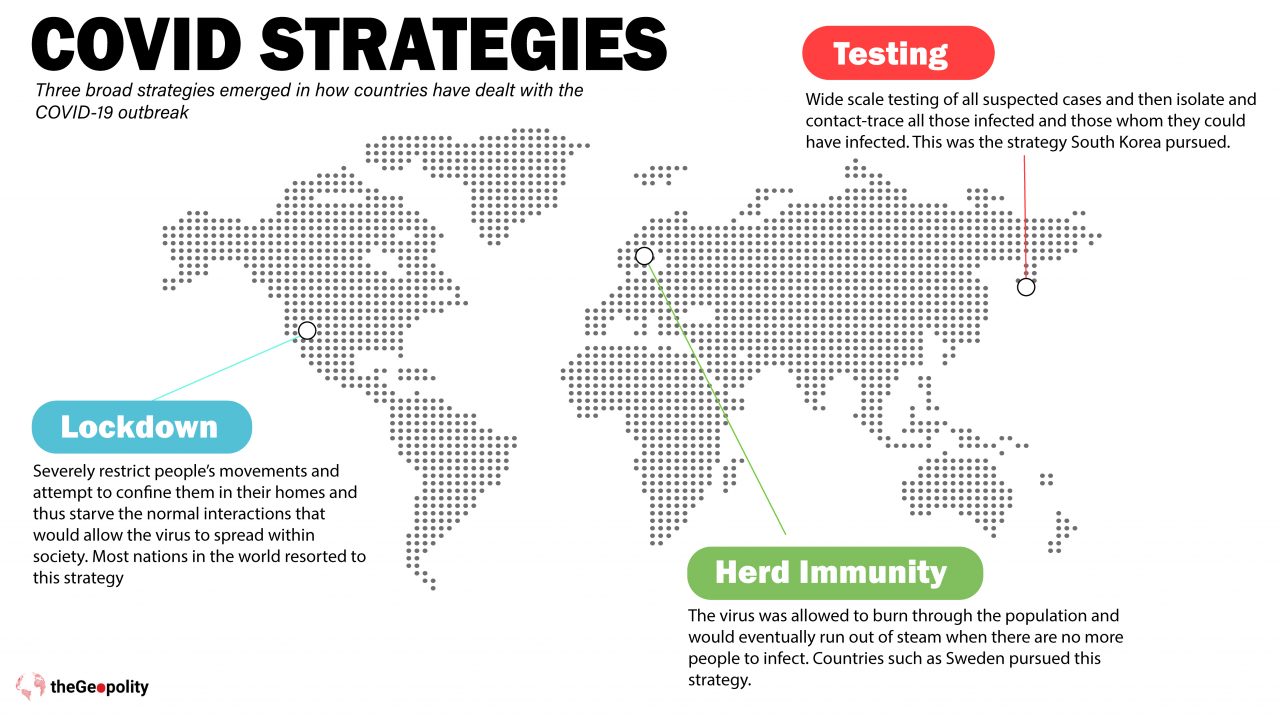
End of political Islam? – The electoral defeat of Morocco’s Islamic party in September 2021 reflects people’s frustration with their country’s poor economic situation, as well as the failure of other Islamic groups who emerged victorious after the Arab spring uprisings. But the inability of such parties to make root and branch changes, compromise and back tracking on Islamic governance in the name of moderation ultimately led to their failure. In all the nations where the Arab spring took place much of the pre-uprising architecture remains in place such as economic mismanagement, lack of rights and authoritarianism. This all means it’s likely we will see a repeat of what took place in 2011, though it remains to be seen if 2022 will be that year.
Balkans: Dayton Accords coming apart? – It has been 26 years since the Dayton agreement was made to bring to an end the Bosnian War, one of the Yugoslav Wars. The warring parties agreed to peace and to a single sovereign state known as Bosnia and Herzegovina composed of two parts, the largely Serb-populated Republika Srpska and mainly Croat-Bosniak-populated Federation of Bosnia and Herzegovina. But in December 2021 Serb lawmakers in the Bosnian Serbs’ autonomous republic began the process of withdrawal from key national institutions in Bosnia-Herzegovina, in effect, seceding. The Dayton system was in reality a stopgap measure to end the war and was never intended to be permanent. Many Serbs still reject the international-court verdicts that established the Srebrenica massacre as genocide. With the Serb side so roundly rejecting it they believe they do not need to abide by the Dayton Accords agreement.
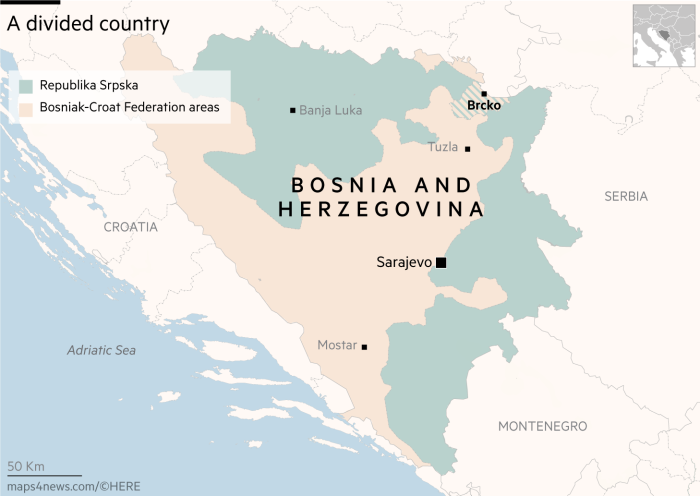
Climate Change Initiatives Hit Brick Wall – The COP26 summit in Glasgow in November 2021 ended after two weeks of lengthy discussion and apocalyptic cries. In the end the final statement agreed to phase down rather than phase out coal use. The conference participants also agreed to meet again in a year’s time to talk about everything all over again. The divide between those who believe the world is at a tipping point and those that want to maintain the status quo was as stark as ever. The world powers with their lobby groups outnumbered those that wanted to see urgent action. The conference saw many pledge emission reductions and the phasing out of fossil use from 2050 onwards, which are easy to agree to as there is no legal requirement, or international institution that will be holding pledgers accountable. Whilst the left push for action those on the right and extreme right deny there is a problem or believe there is plenty of time to deal with it. It’s unlikely in 2022 we will see any firm action but protests and pressure by those who want to see action is already becoming a domestic electoral issue in many western nations.
Democracy Hits Rock bottom – A majority of young Americans are worried about the state of democracy in the US according to Americans (age 18-29) conducted by Harvard’s Kennedy School. 52% of the polled believed that American democracy is “in trouble,” at 39%, or “failing,” at 13%. Not only do young people worry about the state of democracy, some also worry about a full-scale civil war erupting in America with 35% believing that they’ll see a second civil war in their lifetime. “We have twice as many young Americans describe the state of our democracy has failed as compared to being healthy,” said IOP Polling Director John Della Volpe. These trends come as US President Joe Biden held a virtual democracy summit in December 2021 as confidence in democracy is at rock bottom across the western world with many turning to unorthodox political groups and individuals as they feel democracy doesn’t work for them. The fact that democracy needs a conference shows the severe problems it’s facing.




